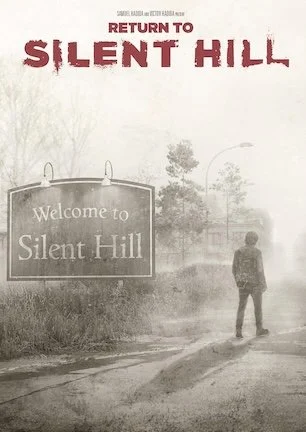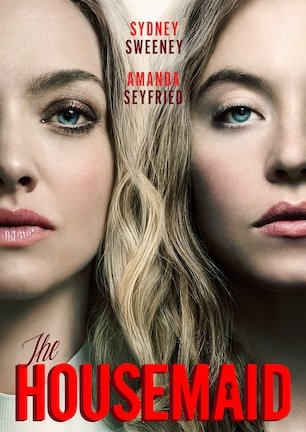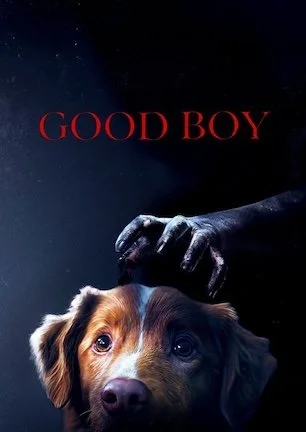Studio: Hulu
Director: Babak Anvari
Writer: Babak Anvari
Producer: Lucan Toh, Babak Anvari, Christopher Kopp
Stars: Armie Hammer, Dakota Johnson, Zazie Beetz, Brad William Henke, Karl Glusman
Review Score:
Summary:
A bartender’s mind and entire life begin unraveling after he recovers a dropped phone connected to otherworldly occultism.
Review:
No matter how much I mull over “Wounds,” I’m no closer to concluding whether Armie Hammer’s performance is brilliantly bland by design or just boringly blah. Maybe it comes down to your perception of the actor as much as Hammer’s take on his character.
Hammer plays Will, an ordinary New Orleans bartender better described by naked facts than distinctive traits, only because there are more of one than the other. Unfortunately for Will, his status as a college dropout affords him enough intelligent awareness to recognize the rut where he resides. He and his girlfriend Carrie both know their passionless relationship runs on routine, but neither feels incentivized to do anything about it. Will instead gets his romantic kicks from openly flirting with regular customer Alicia, never mind the new boyfriend on the barstool beside her.
In between idle chitchat and swatting at cockroaches, Will breaks up a fight between barfly Eric and one of Eric’s drunken buddies. The commotion causes a couple of teens to head for the exit. One of the underage drinkers drops a phone in the rush.
Although he doesn’t know why, Will feels compelled to take the phone home. That night, Will receives a series of texts cryptically pleading for help. “I think something’s here with me! We shouldn’t have messed with those books! It’s that thing from the tunnel.” Will assumes he’s on the receiving end of a prank until he finds that the phone also contains photos of dead bodies. Then a startling video of a severed head crawling through cockroaches abruptly concludes with a hand emerging from a hole in the skull.
Whatever weirdness Will stumbled into, it’s only begun to mess with his mind. The deeper he burrows into the otherworldly mystery of bodily portals to alternate dimensions, the more Will becomes haunted by hallucinations that unravel his life while gradually driving him mad.
Pick your “-ian” for describing the story at the center of “Wounds,” which is based on author Nathan Ballingrud’s novella “The Visible Filth.” Lynchian, Lovecraftian, Cronenbergian, and Hitchcockian all apply in some fashion. Or rather, “Wounds” would feel Hitchcockian if Armie Hammer didn’t slather the Everyman archetype with a bright beige coat of lead paint.
I suppose someone could try arguing that Hammer’s Will embodies a modern equivalent of a Cary Grant or Jimmy Stewart role in an Alfred Hitchcock thriller, i.e. a common person unexpectedly caught in the wrong place at the wrong time. Except Will’s introductory scenes merely depict a character without truly constructing one. Outside of occult eeriness, Will’s dull days consist of playing video games with a bored expression on his face, disinterestedly joking with a cashier at a market, or popping a beer while watching a friend sleep. Superficially, mundane actions appear to operate as relatable activities establishing Will as average. Counterproductively, they contribute to a frustratingly hollow protagonist with nearly no personality an audience can hitch to.
Always outfitted in jeans and a t-shirt, Will’s blasé basicness is at least partly intentional. In order for his transformative arc to match the movie’s metaphors, “Wounds” requires Will to exist in a haze of nondescript complacency. Later in the film, Will’s girlfriend correctly observes, “There’s nothing there to satisfy. You are a mock person. You’re just a body.” Emptiness means to make up a majority of his eroded persona.
Which is why I’m unsure if I should commend Armie Hammer for flattening Will into two dimensions, possibly under specific directions to do so, or criticize him for being successful at it. For me, Hammer has always been just below Sam Worthington and right above Jai Courtney on the unremarkable list of interchangeable male leads who don’t possess half the charisma casting directors apparently believe they do. Nowhere is this vacancy more evident than during a lengthy opening scene of Will tending bar. Moving and speaking as though he’s in a stage play, there’s nothing natural about Hammer’s dialogue delivery. Rehearsed lines fall from an invisible page in his head and out of his mouth, without mental motivation breathing behind them.
Regardless of how purposefully pedestrian Hammer may make his performance, casual characterization causes detachment from muddled drama. Lulled into a fugue state by unvested stakes, the viewer becomes lost in a cloud of confused ideas while the fiction loses focus. Fighting to find what the movie might be “about,” I settled on a parallel of trust in relationships. Others identified alcoholism. Whatever wisdom “Wounds” wants to impart, its various threads never really weave into a poignantly identifiable theme.
The film’s confounding clarity doesn’t equate to a red pen write-off. Supernatural scenes supply a wealth of horrific content. Independent of context, a “Ringu”-like etherealness accompanies mesmeric creeps with nightmarish tones and textures. Filmmaker Babak Anvari unquestionably possesses a gift for crafting unsettling atmosphere through petrifying sights and intangible implications. Building on his impressive debut feature “Under the Shadow” (review here), Anvari could be a master of the macabre in the making.
“Wounds” has maybe 60% of the materials it needs to become a confidently compelling chiller. Talents like Dakota Johnson and Zazie Beetz have their work cut out trying to make memorable performances out of underutilized ancillary characters. With a script overhaul putting more purpose into secondary players and subplots, “Wounds” might find the gripping narrative constantly fleeing to new hiding spots whenever substance gets sidetracked.
In its current condition, the film can be filed under standard “descent into insanity” fare that’s mildly more cinematic in conception than most. Had story and subtext been as sorted as visual execution, we’d be discussing “Wounds” in decidedly more glowing terms.
Review Score: 60






While the 110-minute runtime could use a trim to maintain more energy, “Redux Redux” is an easy recommend for anyone who enjoys low-key sci-fi.